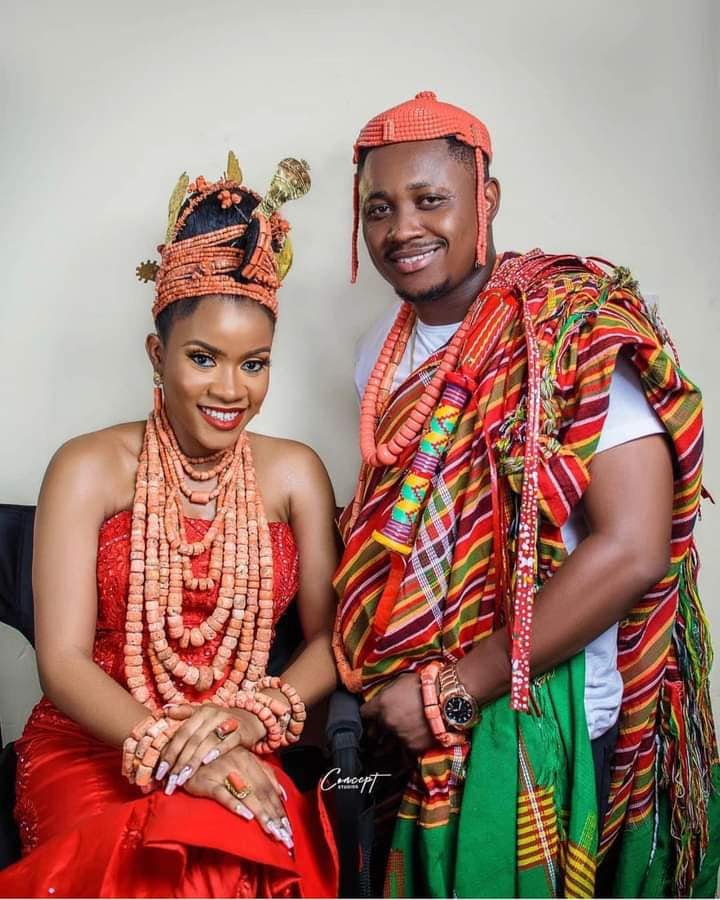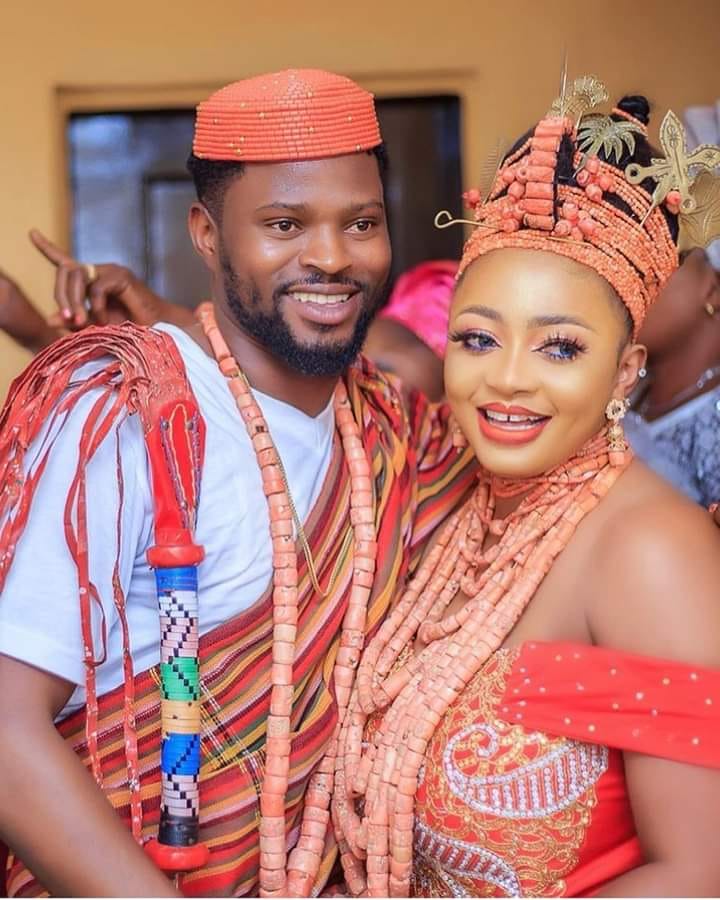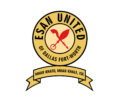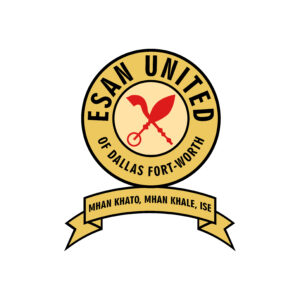A few words about
ESAN TRADITIONAL MARRIAGE RITES AND BRIDE PRICE REQUIREMENTS
Bride Price and Marriage Types
Esan people value their children, male or female, which is why, unlike some cultures, the bride price is very low. The payment of bride price is vital to the conclusion of marriage notable under Esan native law, which, like any other customary law marriage in Nigeria, is recognized under the Marriage Act.
The impression being that Esan people do not sell their daughters into marriage, the requested amount for bride price is usually meagre — 24 Naira (representing 24 cowries or British pounds used in the pre-colonial and colonial days). A huge sum is usually presented these days, from which the prominent members of the bride’s family would remove a small amount and refund the balance to the groom for his wife, their daughter’s upkeep.
We have two major types of marriages in Esan Land: Monogamy – a marriage between one man and one woman, and Polygamy – a marriage between one man and two or more wives. Traditional marriage is usually an arrangement between two families as opposed to an arrangement between two individuals. The man usually pays the bride price and is thus considered the head of the family. Adultery is acceptable for men but forbidden for women. Marriage ceremonies vary among Esan clans.

Betrothal, Bride-Seeking, and Wedding Preparations
Sometimes parents actually go looking for a wife or husband for their children. This led to the Betrothal System, where marriage was conducted with or without the consent of the individuals involved. Sometimes such betrothal took place when a baby girl was born. Suitors would begin to approach the parents by sending a log of wood or bundle of yam to the parents of the child. You are likely to hear statements such as “Imu’ Ikerhan gboto” – “I have dropped a log of firewood.”
When a boy decides to get married and the parents have accepted the bride as a prospective daughter-in-law, messages go up and down between the two families. This is called Ivbuomo – seeking for a bride. Series of investigations are conducted by both families about disease, scandals, and crimes which may affect the families.
The terms of the marriage, which may include the bride price, would be settled in some families. Gifts for the mother of the bride and Iroghae – members of the extended family – would be part of the settlement. Then a date would be set for the ceremony, which would take place in the home of the woman’s family. The Oka Egbe of the woman’s family would normally preside over the ceremony.
Nunc et dapibus odio. Praesent est est, tincidunt at scelerisque in, feugiat id erat. Integer ac elit id nulla hendrerit porta sed in nulla. Nam eu odio ac lacus tincidunt ultricies et et massa. In aliquam semper porta. Sed leo augue, dictum quis odio quis, aliquam bibendum neque. Proin vitae commodo leo, ac tincidunt turpis. Etiam efficitur diam a sagittis luctus. Morbi consequat in nulla nec semper. Cras consectetur quis sapien nec bibendum. Phasellus eleifend orci ac diam placerat, in scelerisque odio sollicitudin. Morbi facilisis velit vitae suscipit ornare. Vestibulum scelerisque tempus nulla a ornare. Ut facilisis orci et purus tempus, in gravida risus fringilla. Donec aliquam massa eget dui ultricies fringilla. Mauris aliquet, lectus nec vehicula congue, lorem magna dignissim ex, et pharetra nunc justo at tellus.

Wedding Day Customs, Post-Marriage Rituals, and Modern Changes
Many years ago, the woman would be sent to the bridegroom’s house about thirteen days after Iwanien Omo and gingerly hoisted either on her husband’s lap or the Oka Egbe of his family. Today, this is usually done immediately in the bridegroom’s home. The bride, now known as Ovbioha, would be led by her relatives to the husband’s house with all her property, while the family and friends of the groom feast, drink, sing, and dance awaiting her arrival.
As the family awaits the Ovbioha, messages arrive suggesting there are Ughunghun – barriers on the road. The groom must remove these barriers by sending money, or the bride will not arrive. On approaching the groom’s house, chants of “Ovbioha gha mien aro-aro” – “Bride! Be proud” – fill the air. Her arrival is followed by the Ikpobo-Ovbioha – washing of the bride’s hands with water containing money, which, along with a new head tie, belongs to her.
A few days later, the bride is taken to the family altar for prayers and undergoes the Igbikhiavbo ceremony – beating of okro on a flat mortar – followed by a visit from her mother-in-law and other women. If found a virgin, she is showered with gifts; if not, preparations for the Ivihen – oath-taking ceremony – begin. The oath binds her to fidelity, faithfulness, and honesty.
Christianity, Islam, and Westernization have weakened some of these traditions. Many rituals are now avoided, and women often refuse the oath, which once helped maintain marital fidelity and reduced divorce in Esan culture.
BRIDE PRICE REQUIREMENTS
Below is an average bride price list. Use the below bride price list to draw up your marriage introduction budget, and be prepared by saving up before contacting your future in-laws.
The Holy Bible – 1 (one)
1 Umbrella
1 suitcase filled with clothes (box of wrappers)
2 bottles of hot drinks (schnapps)
1 crate of malt drinks
1 plate of kolanuts
1 bag of salt
25 liters of palm oil for the bride’s mother
1 jar of palm wine
1 carton of wine for sundry use (the groom should hold this)
3 crates of malt for women of the lineage
6 carton of beer for men of the lineage (broken down into: 2 cartons of small Guinness stout; 2 cartons of Star beer; 2 cartons of Gulder beer)
28 tubers of yam arrange in groups of seven
14 tubers of yam for the eldest man in the lineage
N1,500 cash for the dowry
N5,000 cash for the bride’s mother
N3,000 cash for the bride’s father
N9,000 cash for the men in bride’s lineage
N6,000 cash for the women bride’s lineage


